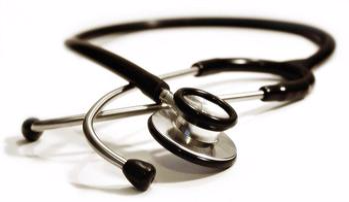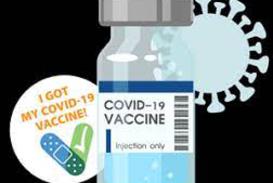Healthcare Medical Pharmaceutical Directory.com
Trade Relations, Distributors, Wholesalers
Business Trends...
- Wholesalers, distributors and medical suppliers are implementing enhanced marketing strategies, supply chain and logistics services in oncology, dialysis, specialty pharmacy, surgery and other medical specialties
- The trade relations business anticipates more normalized operations in 2021 as COVID-19 immunization efforts gain momentum nationwide but Amazon's growth in the healthcare sector is a threat to revenue streams
- Gain strategic insights on the healthcare wholesaler, distributor and healthcare supply chain business sectors
Healthcare Wholesalers, Distributors, Medical Suppliers Market Sector Overview
The pharmaceutical and medical supply chain in the United States is complex and heavily regulated; even more so with the emergence of and litigation pertaining to the opioid health crisis. Like the pharmacies, hospitals and other provider segments it supplies, healthcare wholesalers, distributors and suppliers are consolidating. Supply chain partners seek to optimize their income from both manufacturers and enduser customers. Competing healthcare manufacturers develop specific strategies and cultivate opportunities to enhance their own profitability and market access position solely based on advantages they apply via trade relations channels.
The sector experienced significant disruption in 2020 due to the pandemic as demand for some products such as PPE and drug therapies used to treat COVID-19 escalated and other product categories plunged due to a plunge in elective medical procedures and other patient care services. As new COVID-19 antiviral drugs are launched and national vaccination campaigns rollout, the business trends in the trade sector could begin to normalize if the pandemic subsides over the course of 2021.
Cost effective software solutions spanning CRM, contracting, GPO and enduser pricing, warehouse management systems (WMS), EDI tracking, logistics, vendor management, 3PL and 4PL options plus other applications to accelerate delivery time, streamline processes, reduce costs and improve cash flow are highly coveted throughout this healthcare industry sector.
Healthcare Provider Organizations Seek To Reduce Costs And Improve Efficiency Via Supply Chain Improvements
Hospitals, health systems, medical practice groups, pharmacies and other healthcare provider organizations are continually seeking ways to reduce administrative and operational costs through their supply chain partners and have their own vendor managed inventory (VMI) priorities. This includes better contracting strategies, streamlined procurement processes, improved inventory management, lower shipping costs and other options. Some of the solutions they develop to improve performance are derived from their own improvement initiatives and / or developed through their supply chain vendors. As consolidation continues across hospitals, health systems, physician practices, pharmacies and other healthcare sectors, the ability to economically manage larger organizational models better becomes more challenging and supply chain vendors are a pivotal element in their operational costs.
Trade Relations Market Access Strategy
Pharmaceutical, medical device, medical equipment, medical supply goods and other manufacturers are continually engaging healthcare wholesalers, distributors and suppliers to optimize their ability to provide their goods to medical professionals, pharmacies and healthcare consumers. Contracting strategies, intertwined with GPO agreements, rebates, chargebacks, service fees and other elements, are part of the market access formula for healthcare product manufacturers to navigate. They not only balance the business requirements of the trade partner (wholesaler, distributor, supplier, etc.) but the end customer as well which could be a clinician or a consumer/patient.
Frequently, single-digit percentage points or fractions thereof aligned with margins involved in trade relations and market access strategy can make enormous impacts on manufacturer profitability plus enduser product availability and final pricing. Manufacturers need to closely account for the impact trade relations and supply chain vendors have at each stage of the product lifecycle starting with product development then progressing through product launch and ongoing brand and product management.
Global healthcare wholesale leader McKesson
Based in San Francisco, McKesson ( NYSE: MCK ) produces over $208 billion in annual sales and is listed at number 5 on the Fortune 500 list. McKesson has made a long run at strategic acquisitions; most notably Echo in 2019, MSD in 2018 and CoverMyMeds in 2017. Early in March '16, McKesson acquired Rexall from Katz Group for $2.2 billion dollars. There are about 470 Rexall units in Canada with the highest concentration in the western region. Rexall is the second largest retail pharmacy in Canada. This vertical integration maneuver gave McKesson an immediate nationwide retail presence across Canada.
McKesson has solidly diversified its business model and positioned itself well in advanced pharmaceutical and healthcare services sectors. In February '16, they acquired Vantage Oncology and Biologics, Inc. in two deals totaling $1.2 billion. Vantage was a leading national provider of radiation oncology, medical oncology and other integrated cancer care. Biologics, Inc. was the leading independent oncology-focused specialty pharmacy in the United States.
McKesson's reach into the specialty pharmacy and oncology market enables it to interface directly with patients, providers and payers. In 2013 McKesson accquired Celesio AG (a large, Stuttgart, Germany-based drug distributor) for $5.4 billion. Celesio operates 132 facilities which provide drugs and other healthcare products to hospitals and pharmacies in 14 European nations and other select locales. The deal provided McKesson with deeper reach into global markets and greater leverage in negotiating with generic pharmaceutical manufacturers and other makers of healthcare products.
McKesson And Walgreens Boots Alliance In Germany
Late in 2019 McKesson and Walgreens Boots Alliance entered into a collaboration to form a joint venture in Germany. The two combined their drug wholesale units in Germany ( Alliance Healthcare Deutschland based in Frankfurt and GEHE Pharma Handel based in Stuttgart). McKesson has a 30% stake int the venture and WBA owns the remaining 70%. The formation of the joint venture sharpens operational efficiencies and boost their collective competitive position in Germany. The new organization will operate exclusively within Germany's borders and was approved by trade authorities in November 2020.
AmerisourBergen Business Model Robust Aside From Compounding Pharmacy Challenges
AmerisourceBergen (NYSE: ABC), ranked at number 12 in the Fortune 500, produces over $153 billion in yearly sales. It acquired privately held pharmaceutical and medical products distributor H.D. Smith for $815 million in 2018. Their acquisition of pharmacy compounder PharMEDium in 2015 provided them with a high margin business which they used to augment their pharmacy services as they ramp up moving forward. AmerisourceBergen's decision early in 2020 to shut down the PharMEDium business unit permanently following a consent decree and other regulatory action from the FDA in 2019 marked the end of their sterile compounding enterprise which they had paid $2.6 billion for in 2015.
Much of this stems from the New England Compounding Center's (NECC) safety violations which produced defective product that caused deaths and hospitalizations for patients who contracted meningitis from their use. NECC was affiliated with a larger compounding pharmacy entity, Ameridose. Both commercial enterprises have ceased to operate. The Drug Quality and Improvement Act of 2013 and the status of 503B pharmacies approved to produce pharmaceutical products in bulk supply through specific licensing and specific production requirements with strict safety standards changed the course of AmeriSourceBergen's plans.
AmerisourceBergen And Walgreens
About 28% of AmerisourceBergen is owned by Walgreens Boots Alliance. If Walgreens does go private they may choose to jettison their share of AmerisourceBergen through a sale of stock or other maneuver to help pay off deal costs. Globalization of healthcare supply chains is an important industry trend to reinforce buying power and logistical efficiencies. Walgreens/Boots is well underway in its efforts to integrate itself plus complete its acquisition of the Rite Aid units it acquired. The growing organization will be supported by its respectable 23% stake in the global healthcare distributor/wholesaler AmerisourceBergen; undoubtedly Walgreens/Boots can be expected to advance with other sizable acquisitions or ownership stakes in the near future.
Is A Top Contender Competing With McKesson and AmerisourceBergen
Based in Dublin, Ohio and Dublin, Ireland, Cardinal ( NYSE: CAH ) is ranked at number 16 in the Fortune 500 and operates in 46 countries while generating over $136 billion in annual revenue. They distribute as well as manufacture an array of products used by ambulatory surgery centers, hospitals, health systems, laboratories, medical group practices, pharmacies and other healthcare provider organizations. Cardinal has undertaken an assertive growth by acquisition strategy. It has completed several large scale deals in the last 5 years as well as smaller purchases:
- Acquired Harvard Drug Group in 2015 for $1.1 billion
- Bought Johnson & Johnson's Cordis business unit for $2 billion in 2015
- Purchased NaviHealth in 2015 for $410 million
- In 2017 they acquired Covidien assets from Medtronic for $6.1 billion
Henry Schein Continues To Expand Through Strategic Acquisitions
Founded in 1937, Henry Schein ( NASDAQ: HSIC ) generates over $13 billion in annual sales. Based in Melville, New York, it operates in 31 countries. Henry Schein enters 2021 following these and other acquisitions:
- Dentally, owned by NJ Technologies, is a software company focused on dental practice management
- North American Rescue, a supplier of emergency and survival products to defense and public safety sectors
- Lighthouse 360, a dental practice management software and communications technology company
- Cliniclands, a dental distributor serving Denmark, Norway and Sweden
- Elite Computer Italia, a software and technology solutions provider for dental practices and laboratories
Medline is a privately held company that manufactures and distributes a variety of products
Founded in 1966 and based in Northbrook, IIlinois ( a Chicago suburb ), Medline generates over $11 billion in annual sales. In 2019 Medline bought NAMIC fluid management for about $168 million. By acquiring NAMIC Medline added cardiac catheterisation products to their portfolio including contrast management and closed fluid systems, guidewires, disposable transducers and interventional accessories.
Medline operates in over 90 countries and services numerous healthcare sectors including hospitals, health systems, long term care, medical group practices, pharmacies, surgery centers and other channels. Medline works with a wide span of pharmaceutical and medical device manufacturers plus produces and distributes numerous types of medical products and patient care supplies including:
- Basic disposables
- Durable medical equipment ( DME )
- Drapes, gowns, assorted linens
- Examination gloves
- Incontinence products
- Procedure kits
There have been reports that Medline is shopping itself to other companies but as of mid-2021 no deal has emerged.
Owens & Minor: A Leader In Surgical / Hospital Specialties
Owens & Minor ( NYSE: OMI ) is based in Mechanicsville, Virginia; founded in 1882, it generates over $9.4 billion in annual sales. Owens & Miner significantly expanded their operational footprint in 2017 through purchasing:
- Surgical and infection prevention assets of Halyard Health for $720 million
- Byram Healthcare, a medical products distributor, for $380 million
In 2020 Owens & Minor sold it European logistics business, Movianto, for $133 million. It reportedly is still considering options to put itself up for sale. With a market capitalization of about $2.2 billion and a debt load of over $1.5 billion, the company may be taken private or be acquired by another healthcare wholesaler or distributor in 2021.
The Threat Of Amazon In The Healthcare Supply Chain Marketplace Lurks On The Perimeter
Amazon has robust business initiatives underway in the healthcare sector. Their product selection is growing in variety and in sophistication. They have the ability to compete with traditional group purchasing organizations, healthcare distributors, wholesalers, suppliers and retailers for consumer, patient and healthcare provider organization customer sector business. Their purchase of and fortification of online mail order pharmacy PillPack exemplifies its commitment to directly engaging with consumers while aligning itself with contracted market access strategy through payers. Its current issue with SureScripts may be decided by an upcoming antitrust lawsuit filed by the Federal Trade Commission against SureScripts.
Amazon's introduction of its integrated employee health services " Amazon Care" plus their medical and patient information platform acquisition of startup Health Navigator are essential building blocks to not only improve care and reduce healthcare costs for employees but also to commercialize these components and produce new revenue streams. By building out its internal data applications, Amazon is enriching its ability to not only manage their own healthcare costs and care abilities but also better understand the clinical and business challenges of their customers. Those insights are a proving ground for them to develop better solutions they can market to a variety of stakeholders throughout the medical community. Amazon will reveal more of its healthcare business strategy as 2021 unfolds.
... Learn about Amazon's new healthcare business initiatives, read the articles below ...
... This is a profile of healthcare Trade Relations and the medical supply chain business sector; scroll down for a list of the largest Drug Wholesalers, Distributors and Medical Suppliers ...
... Understand healthcare market access challenges and solutions in emerging markets ...
... A list of the leading healthcare wholesalers, drug distributors, medical suppliers ...
... Learn about the 2021 Walgreens and AmerisourceBergen $6.5 billion deal ...
...A healthcare industry business intelligence resource with marketing strategy insights for pharmaceutical and medical device manufacturers, healthcare provider organizations, medical software and technology enterprises, patient care service companies and management consulting firms spanning a global community of users from 50+ nations...


